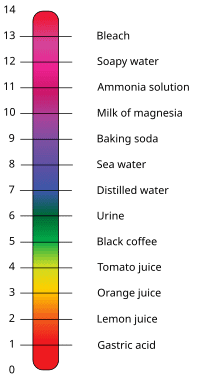RollingThunder
Gold Member
- Mar 22, 2010
- 4,818
- 525
- 155
Here's some more info on the continuing research into the ocean acidification problem. The particular consequence of mankind's fossil fuel carbon emissions threatens to alter or destroy the marine food chain and perhaps ultimately destroy the fish that provide a protein source for much of the world's human population.
Ocean Acidification in the Arctic: What Are the Consequences of Carbon Dioxide Increase on Marine Ecosystems?
ScienceDaily (June 4, 2010) Carbon dioxide (CO2) emissions not only lead to global warming, but also cause another, less well-known but equally disconcerting environmental change: ocean acidification. A group of 35 researchers of the EU-funded EPOCA project have just started the first major CO2 perturbation experiment in the Arctic Ocean. Their goal is to determine the response of Arctic marine life to the rapid change in ocean chemistry.
Ocean acidity has increased by 30% since preindustrial times due to the uptake of anthropogenic CO2. It is projected to rise by another 100% before 2100 if CO2 emissions continue at current rates. Polar seas are considered particularly vulnerable to ocean acidification because the high solubility of CO2 in cold waters results in naturally low carbonate saturation states. CO2 induced acidification will easily render these waters sub-saturated, where seawater becomes corrosive for calcareous organisms. By the time atmospheric CO2 exceeds 490 parts per million (2040 to 2050, depending on the scenario considered), more than half of the Arctic Ocean is projected to be corrosive to aragonite. Arctic waters are home to a wide range of calcifying organisms, both in benthic and pelagic habitats, including shell fish, seas urchins, coralline algae, and calcareous plankton. Many of these are key species providing crucial links in the Arctic food web, such as the planktonic pteropods, which serve as food for fishes, seabirds and whales.
To study the impacts of ocean acidification on plankton communities, the Leibniz Institute of Marine Sciences (IFM-GEOMAR) has deployed nine mesocosms in the Kongsfjord off the north-western coast of Spitsbergen (Svalbard) supported by the Greenpeace vessel Esperanza. Each of the giant, 17 m long 'test tubes' holds about 50 cubic metres of seawater. The enclosed plankton community is exposed to a range of different CO2 levels as expected to develop between now and the middle of the next century and is closely monitored over a 6-week period. The EPOCA scientists, who are stationed at the Ny Ålesund research station, are sampling the mesocosms daily from zodiacs with plankton nets, water samplers and pumps, and conduct measurements with profiling sensors and in situ probes. The multidisciplinary experiment, which will last until mid July, involves molecular and cell biologists, marine ecologists and biogeochemists, ocean and atmospheric chemists. The scientists expect new results about the sensitivities of Arctic plankton communities to ocean acidification and their impacts on the Arctic food web and biodiversity, the cycling of carbon, nutrients and other elements, the production of climate relevant gases and their exchange with the atmosphere.
Story Source:
The above story is reprinted (with editorial adaptations by ScienceDaily staff) from materials provided by Leibniz Institute of Marine Sciences (IFM-GEOMAR).
Copyright © 1995-2010 ScienceDaily LLC All rights reserved
(In accordance with Title 17 U.S.C. Section 107, this material is distributed without profit to those who have expressed a prior interest in receiving the included information for research and educational purposes.)
Blunder,
Until you make a public apology to gslack for your incredibly boorish behavior you're not welcome among the adults.
Walleyedretard
I don't see any adults here among you denier cultists. Just brain damaged children who are all "incredibly boorish". So fuck you, asswipe. You are still unable to respond intelligently to the scientific evidence supporting the reality of this developing ocean acidification problem.


